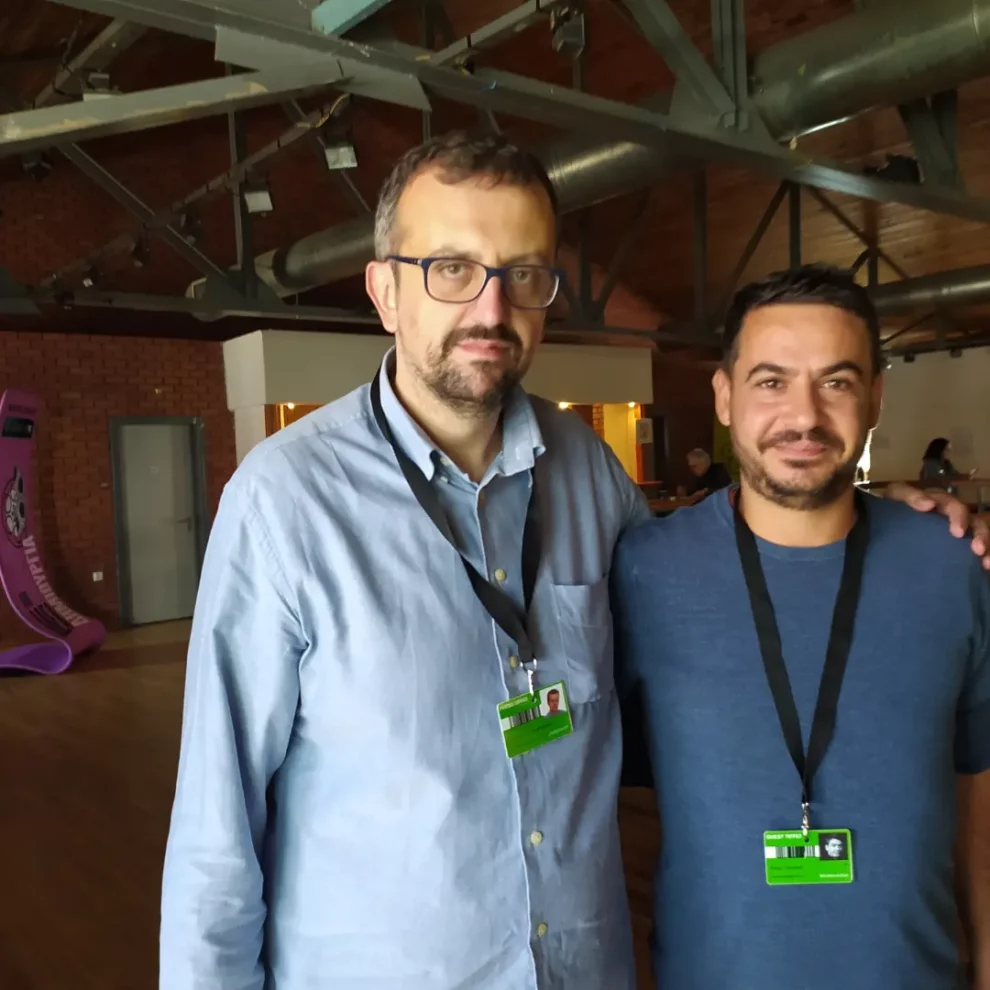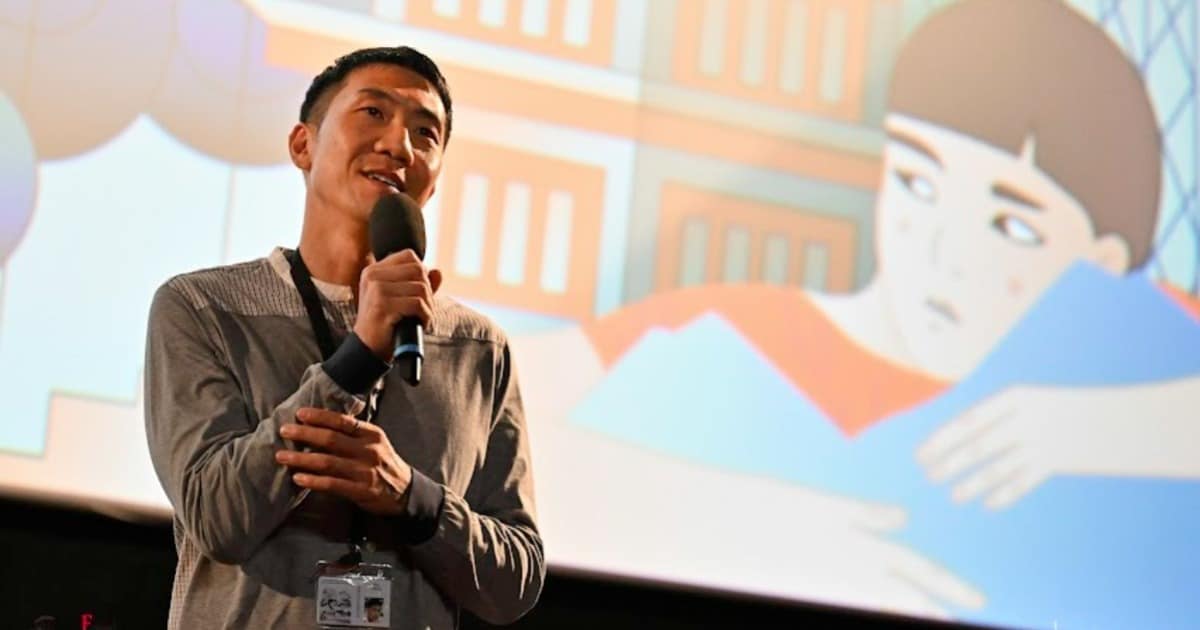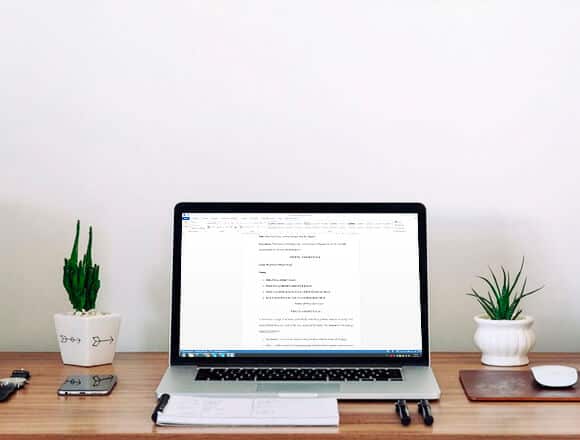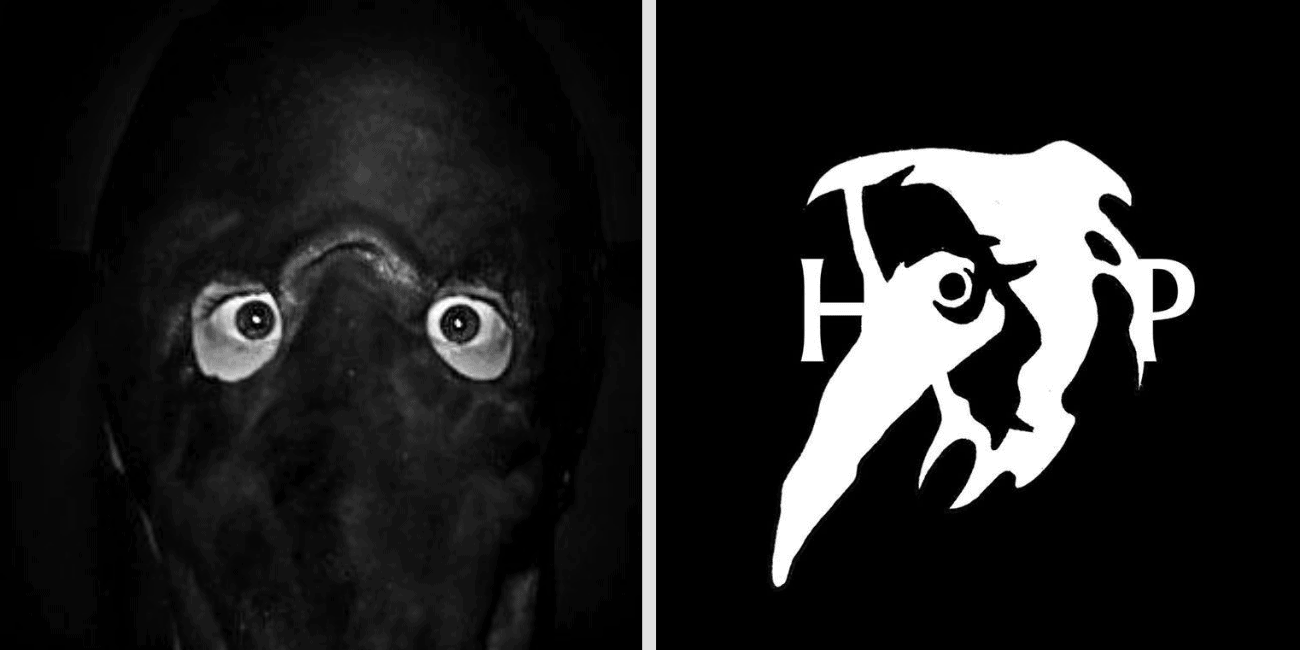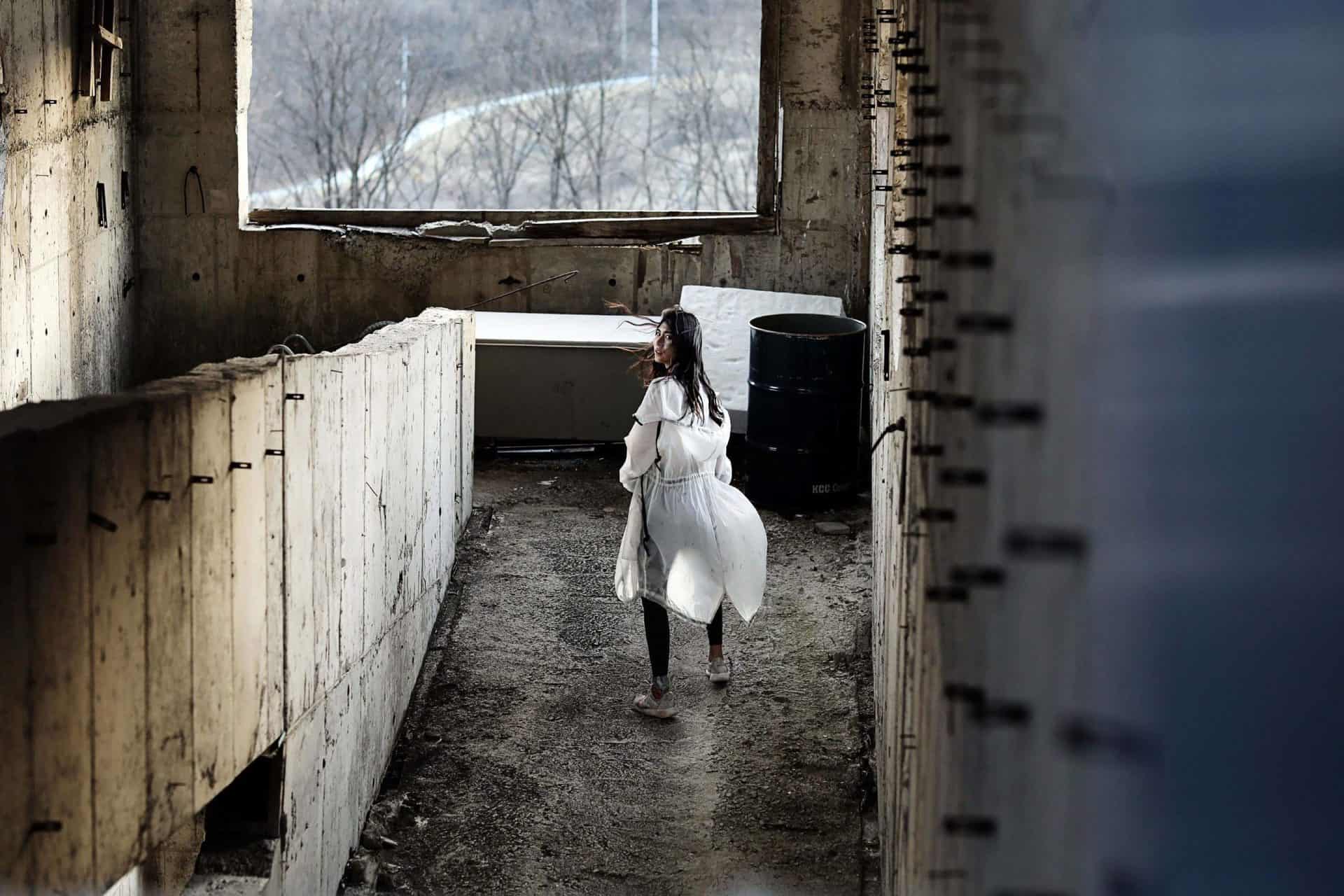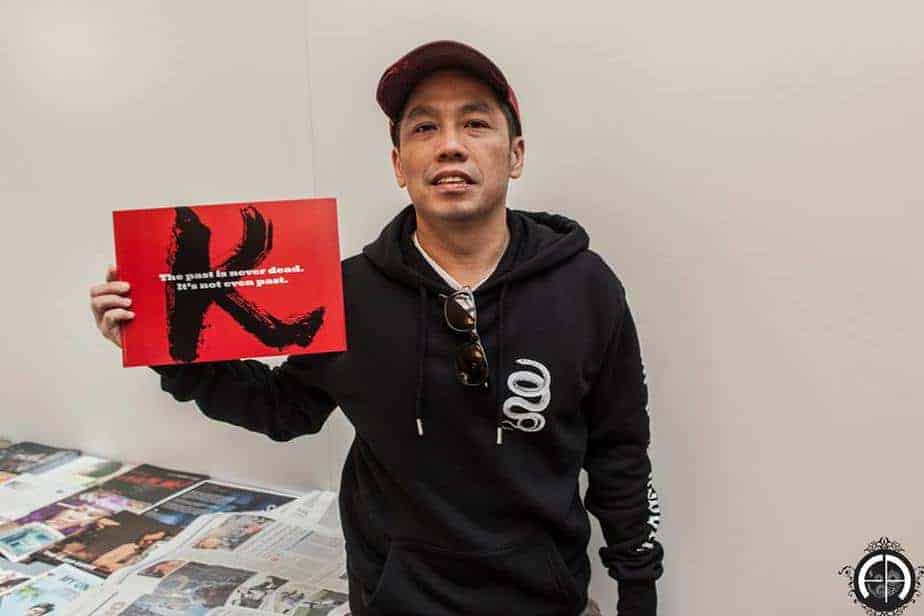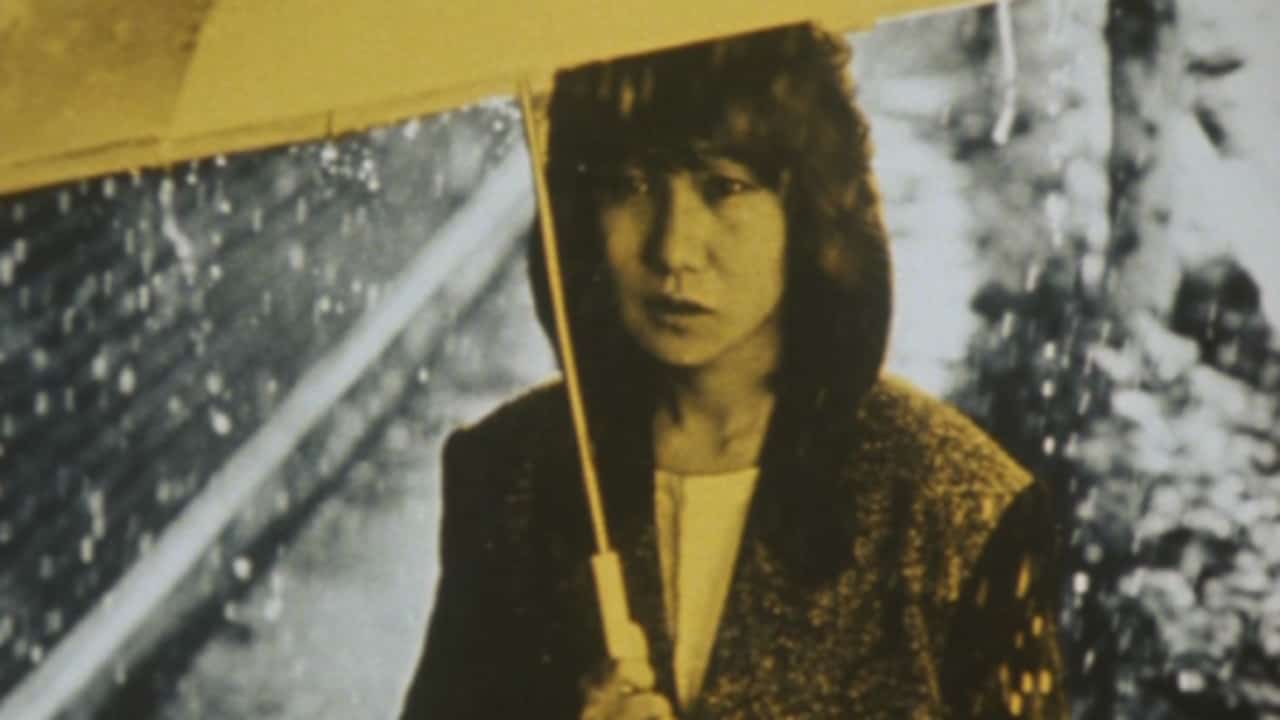Ehab Tarabieh studied Classic Violin at the Damascus Higher Institute for Music and Film in Jerusalem. For the past decade, Ehab has been in charge of the video department at B'Tselem, documenting human rights violations in occupied Palestine. His previous short films have won numerous prizes, including Best Short Film at Doha Tribeca Festival for The Forgotten and a nomination for a European academy award for Smile and the World will Smile Back. Of Land and Bread was Ehab's feature documentary debut that celebrated its world premiere at IDFA. The Taste of Apples is Red is his first feature length film.
On the occasion of “The Taste of Apples is Red” screening at Thessaloniki International Film Festival, we speak with him about the Druze society, living in the Golan Heights, the place of women in the Middle East, goats and dogs, and many other topics.
“The Taste of Apples is Red“ is screening at Thessaloniki International Film Festival
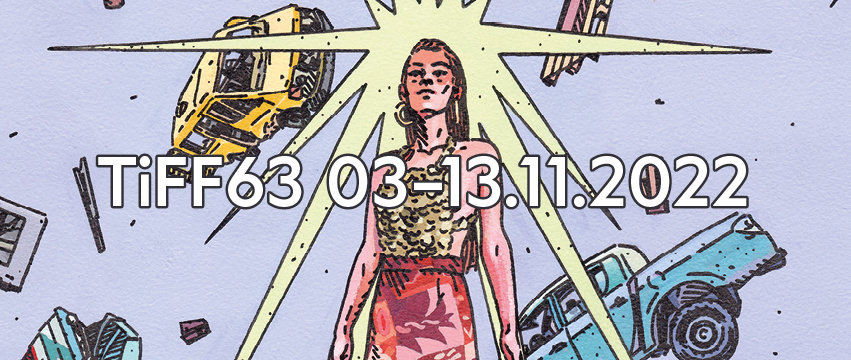
Why did you decide to focus your story in the particular area?
I was born and raised in this area, in the Golan Heights and my family are Druze and religious. so it was very interesting for me to explore my cultural history and my community. That is why I thought of doing something about this community, and also due to the situation with the war in Syria and what is happening there. I myself am Syrian, but I was born after Israel occupied the Golan Heights, so I did not have any experience with that war. I thought to myself that I don't have the right to talk about the war there because I don't know how they feel. But I decided to do it according to my feelings as someone being at the border, and talk about how I see this dictatorship Bashar al-Assad and his father's regime, and what is doing with the Syrians, Bashar al-Assad and his father's regime. This was the beginning of thinking about these kinds of things. The other reason is that Druze believe in reincarnation and I find it, as a filmmaker, a very fascinating element to use while telling a story. I am a big fan of the magical realism school in cinema. I don't consider myself a filmmaker because I am still exploring the way, I just made a documentary film in 2019 about the life of Palestinians, so I'm just trying to take out the ideas that I am thinking. The medium that I know to do so is filmmaking.
Do you believe in reincarnation?
(laughter) Not really. I hear a lot of stories, my parents believe in it, because it is the core of their religion. I respect these beliefs, but I still doubt it all the time.
How does the Druze society work?
Druze have been Muslims for thousand of years, but they separated from Islam and created their own religion. They have their own Book, the Book of Wisdom. They believe mainly in reincarnation and they believe that their number will be equal all the time, their numbers do not increase or decrease. So, if someone dies, then someone will be born in several generations, and then they also believe in Greek philosophers for example. Plato for them is a prophet, Jesus is a high prophet but not the highest one, so it is a mix of various religions like Judaism and Christianity and Islam and also they have many similarities with Buddhism in some ways. It is not a strict religion, but there is an aspiration between people like me who are not religious and the ones who are. So, for example, I am not allowed to read the Book of Wisdom. I have to be religious to explore what this religion is about. I think the reason is that they were chased as a minority in the past, and that is why they made it a secret and it is a tradition until our days.
How does one become a Sheikh like the protagonist?
You need to go to a holy place, a kind of mosque for the Druze and you need to ask the higher priests to join them and you need to do it continuously for a couple of months and then they give you the permission to be religious. Then you shave your head and you need to raise a beard and then you become a priest.
Are the characters in the film based on real people?
I can say yes, they are not particular people but they represent people who are religious, people who are supporting the Assad regime, although he is killing his people and also the other side, the ones who are against the regime. My main character is a religious man but in contrast with other films from the Middle East, who are showing all the time these types of people as primitive and without dilemmas and ethics, in my film, he is a good man, although he is religious. He is like me and you and he has his own dilemmas and he struggles all the time to be a good man.
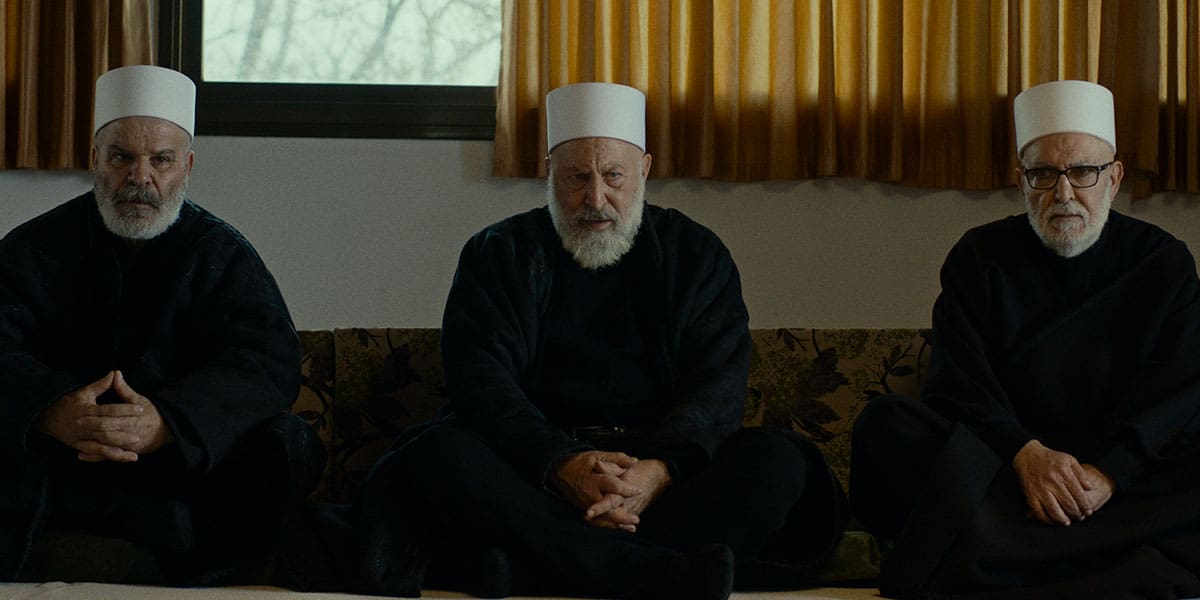
What about the rape in the film, is it based on actual events?
Not exactly. You could hear stories like that in the past, but not now, now the society is completely different. You can hear these stories, not only in the Druze community, but also in the Muslim and Arab world, and Third World countries. A man rapes a woman and runs away, and then they marry her to his brother, to avoid a big shame and it is a kind of judgement towards them. But I made it up for the sake of the story.
Tell me a bit about the goat scene, the most memorable in the film I guess.
(laughter) For starters, goats do not eat babies, I do not think anyone believes this. This episode is not about minorities, it is about minorities in the Middle East, and how I think they think how to survive. When they need to survive, they need a powerful regime or control authority to protect them, because they feel they need someone to protect them from the others. Mostly, minorities are supporting the leaders of regimes in any country, or they are for the dictators. I saw a lot of harsh videos of incidents in Syria and I think it is absurd what we are seeing since 2012, and I believe there were more under the control of Assad the father. Then, I told myself that when you see a soldier as a human and he is killing some innocent man and he is taking his heart and he is eating his heart, it is absurd. I told myself that there should be a scene in the film that is showing this absurdness. When you see a goat, which is a very kind animal, doing the deed they did in the film, you will feel it is something crazy. None of the characters in the film argue the incident, it is exactly like how no one is arguing what is happening in Syria; in fact, no one is arguing why no one is stopping this dictator from killing his people and it continues all the time. It is a kind of a metaphor.
Tell me a bit about the doctor, for me she is the most tragic character of all.
I am constantly thinking about the role of women in Middle East societies and it is a fact that they are treated as people less than men. They are the ones that are taking all the scenes, and all the complicated problems of men and all the social problems and they put it inside and they cannot do anything about it Selma is the one who understands everything and she is the one who is holding the show of her society as well. And that is why, mostly, she does not talk but she reacts to what is happening and she is challenging her father, as well as everyone else. I think the scene with Ahmed, her husband, when he returns, is the most important scene for her character because he hugs her but she feels something rotten in him. It is not his smell but the smell of blood that he brings with him. Women like my mother for instance are very strong, but reside in a society that they will always be less than men. I see this is how these societies treat women and I wanted to implement this in the film as a woman character
When is the story taking place?
It is about 2015, during the war in Syria, when the war was at its peak, on its higher level.
Tell me about Daud, as soon as I saw him on screen I knew he was a crook. Also about the casting.
I was very lucky to have this cast, all the actresses and actors are the most well known Palaistinian/Israeli actors and actresses. Daud is played by Suheil Haddad and he is from Jaffa. He is mainly acting in theater but I discovered him and I told him he needed to be Daud. In real life, he is a good man (laughter). He represents all the men that they are taking advantage of war, because there are always people like that during wars. He is the one who represents this kind of people, he is the villain because he has also done many bad things and one of the things is that he raped Lamia. He is not supporting Assad or Israel, he is dealing with everyone just for his own interest. Unfortunately, one of our major problems from my point of view in the Middle East is this kind of people. This is a fact and we have to face it all the time. Essentially, he represents the Assad regime and he is the one connecting people from the Golan Heights under Israeli occupation with the Syrian regime.
Can you tell me a bit about the cinematography in the film?
The cinematographer is a good friend, his name is Yaniv Linton. I think we just wanted to go with the characters and with the location. We didn't really have a very precise shooting and many of the scenes were planned the same day and we wanted to go with the actors as well, and feel how they will move in the space and then to shoot. It was a continuous discussion between me and him and also between him, me and the cast. I like paintings, colors and light, and we spent a lot of time on lighting in this film, because there are a lot of night scenes as well. The main way we did it were stills, still frames and a little bit of moving. As if the camera is floating into this space, and sometimes it should be at a standstill so we go with the feeling of each moment in the film and this was what we tried to do, simply.
How was your cooperation with the actors? Particularly since they are veterans and you are a relatively new director.
It was an amazing experience I admit, because I just sent them the script and all of them just accepted. We did not do any rehearsals before the shooting, we just talked a lot about the film. Because Druze have a dialect, it is not the usual Arabic communities like the Palaistinians for example, so it took them a little bit of time to understand the dialect. Also, I wanted them to understand exactly the depth of each character and the subtext of each sentence they say. It was a continuous dialogue and there were questions they asked and I needed to give them answers, and it was so tough.
Did you allow improvisation?
I believe in allowing all the time because I am giving them the dialogue and I am telling them to do whatever they want. Because if they get the subtext, I don't care what they are doing. This was the way of working with them, except for the two kids, because they had to be precise with their dialogue.
Can you give me some details with the scene where the dog draws the goat away.
It was a difficult scene. The producers insisted on doing CGI but I denied, and told them we need to find a trained dog that his owner can teach it how to do it. So we went to the location one week before the shooting and the owner of the dog is a professional dog trainer. He put meat into a bag and practiced with the dog how to draw the bag into the cave. The dog is a Czech shepherd and it is very similar to wolves, it is the dog closest to wolves actually. It is very clever but also very aggressive. We did it in the end.
How many takes did it take?
Not a lot actually, 4-5 and then she did it, it was actually a female.
Can you tell me about the editing? I felt that the movie is very economical and there are no unnecessary scenes there.
We shot the film during Covid and we had just 15 days to shoot. It was a tight schedule and we shot for many hours and then the first cut was about two hours long. At some point, I read about a very famous editor, I don't remember his name. He said that the most important thing in editing is to give up scenes that you don't need. So I gave up a lot of scenes because I thought I did not need them and then I thought that the film is slow-burning and it was so slow, so we need to give it a bit of rhythm. Then we got to minimizing everything and to cut all things that were unnecessary, even if they were beautiful cinematically but they don't support the progression of the story.
Is it painful cutting scenes?
Not for me, actually, it was more painful for the editor (laughing), there are scenes she wanted to keep, but I told her if the film works without it, then we don't need it. It was tough in the beginning but then she understood my point. My last film was a documentary and I edited myself. It is an archive footage film, no interviews or anything else, just archive raw footage that Palaistinians shot. It was about 5000 hours and it was during editing that I learned that you need to give up a lot of good things for the sake of the film and for the sake of your vision on how to tell the story in a very short time. That is why I believe short films are more difficult than making a feature film. Because you need to present your ideas and tell your story in a very brief period.
I am sorry if this question is very personal, but do you now identify as Israeli or Syrian?
No, it is a very important question. I am Arab/Syrian, I don't hold any passport, I have Israeli travel documents and my nationality is ‘undefined'. You need a visa everywhere you need to go and you need to fill out a lot of documents and to prove that you are not going to run away and live in Greece for instance. I got used to it.
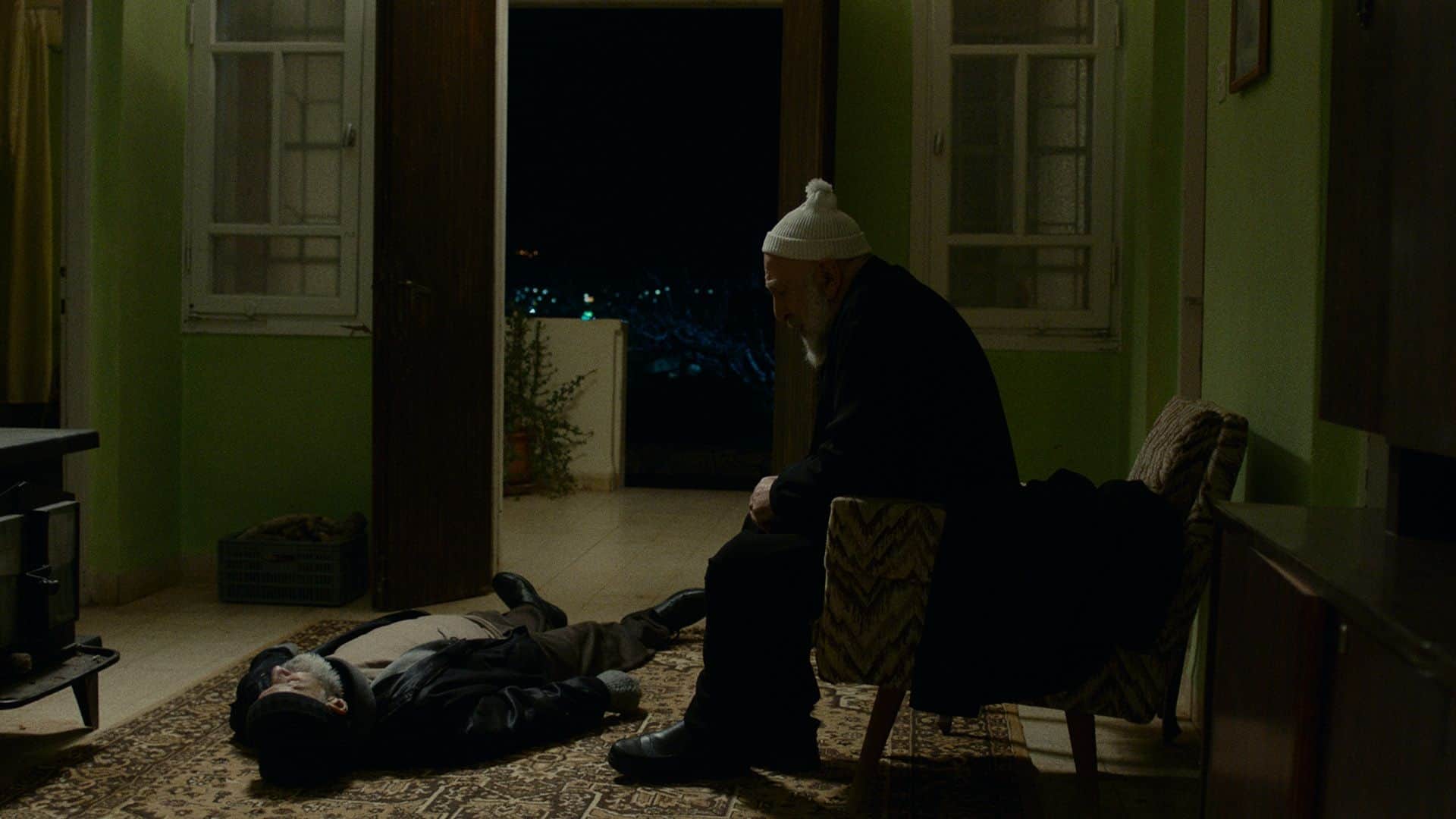
And where are you living now?
In the Golan Heights. I used to live in Jerusalem and before in the Czech Republic for six years. But I got married and have two kids now, so I got back to the roots.
What is the situation with Syrian cinema nowadays?
Assad and his son were very restrictive towards cinema. There are many great filmmakers, one of them is Orwa Nyrabia who is now the artistic director of IDFA. There are many great filmmakers who live abroad, because they do not have the freedom to make the films they want in Syria.
Are you working on any new projects?
There are ideas but since I have kids, 2 and 4 years old, I think this is my most complicated project nowadays. I am beginning to write something but it is not going to be about the Golan Heights. I am a big fan of animation, like Studio Ghibli for example. I think my next project will be something more surrealistic and with animation


